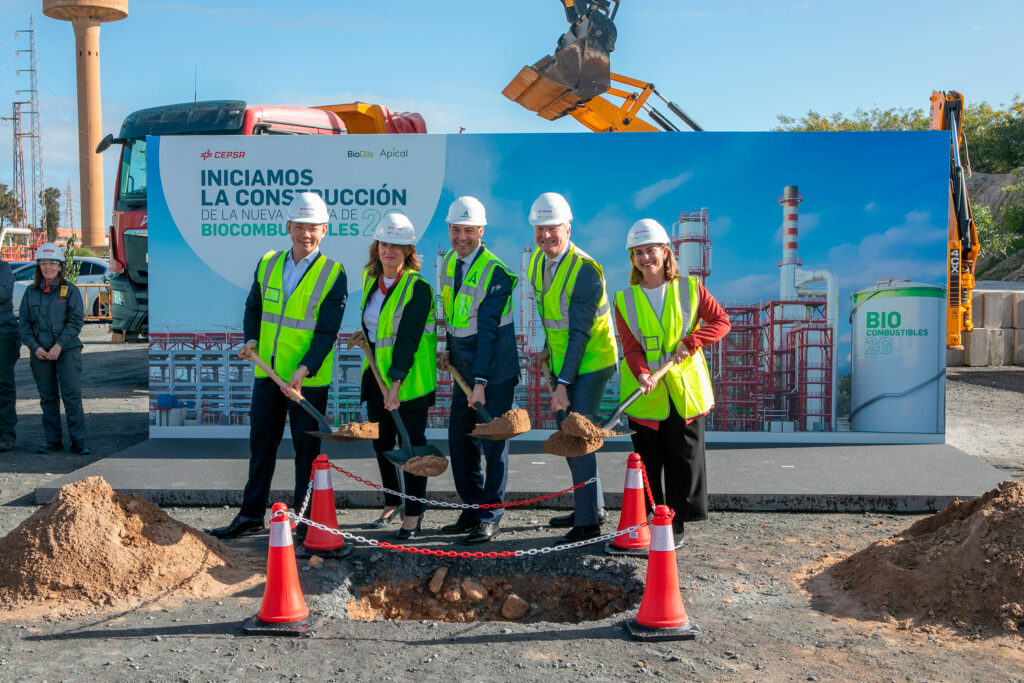
Construction underway on massive $1.8 billion biofuels plant in Spain with capacity to produce 500,000 tons of aviation fuel
February 26, 2024
By
Todd Humber
 Breaking ground on the new facility in Spain. Photo: Cepsa
Breaking ground on the new facility in Spain. Photo: Cepsa Construction is starting in Spain on what is being called the “largest second-generation biofuels plant in Southern Europe,” according to Cepsa and Bio-Oils, a subsidiary of Apical.
This €1.2 billion ($1.8 billion Cdn) facility, which will flexibly produce 500,000 tons of sustainable aviation fuel (SAF) and renewable diesel (hydrogenated vegetable oil or HVO) annually, will allow the joint venture formed by both companies to double its current production capacity, they said in a press release.
“The new 2G biofuels plant, along with the existing facilities operated by Cepsa and Bio-Oils in Huelva, Spain, will form the second largest renewable fuel complex in Europe, with a total production capacity of 1 million tons per annum,” they said.
The facility is expected to be operational in 2026 and is being built in Palos de la Frontera (Huelva), next to La Rábida Energy Park. It is expected to create 2,000 direct and indirect jobs during the construction and operation phases.
“Andalusia is ready to become Europe’s major producer and distributor of clean energy, playing a key role in the irrevocable goal of decarbonizing the planet,” said Juan Manuel Moreno Bonilla, president of the regional government of Andalusia. “This future biofuel plant by Cepsa is a clear and valuable example, a project included in our Project Accelerator Unit, allowing it to be processed in just six months, less than half of what is usually required.”
Cepsa and Bio-Oils said the new plant will have “minimal environment impact.”
“Thanks to the consumption of renewable hydrogen, 100% renewable electricity and different heat recovery and energy efficiency systems, this facility will emit 75% less CO2 than a traditional biofuel plant and is designed to achieve net zero emissions in the medium term. Likewise, it will not consume fresh water, but will only use reclaimed water, and its water emissions will have a minimal impact on the ecosystem thanks to a powerful water treatment plant,” they said.
Compared to traditional fuels, the renewable fuels developed in this complex by Cepsa and Bio-Oils will prevent the emission of 3 million tons of carbon dioxide (CO2) per year, equivalent to 4% of road transport emissions in Spain, they said.
Print this page